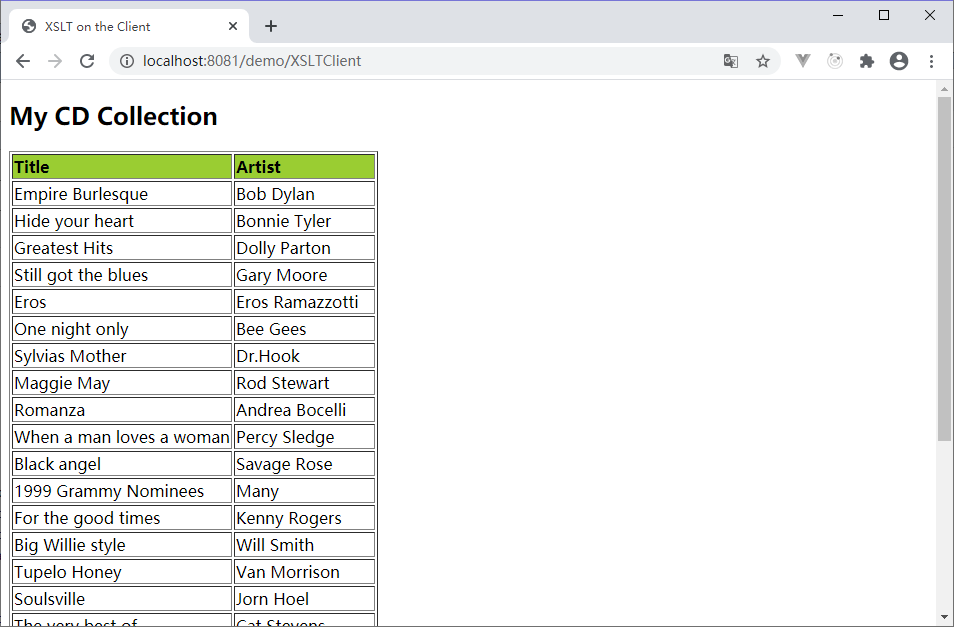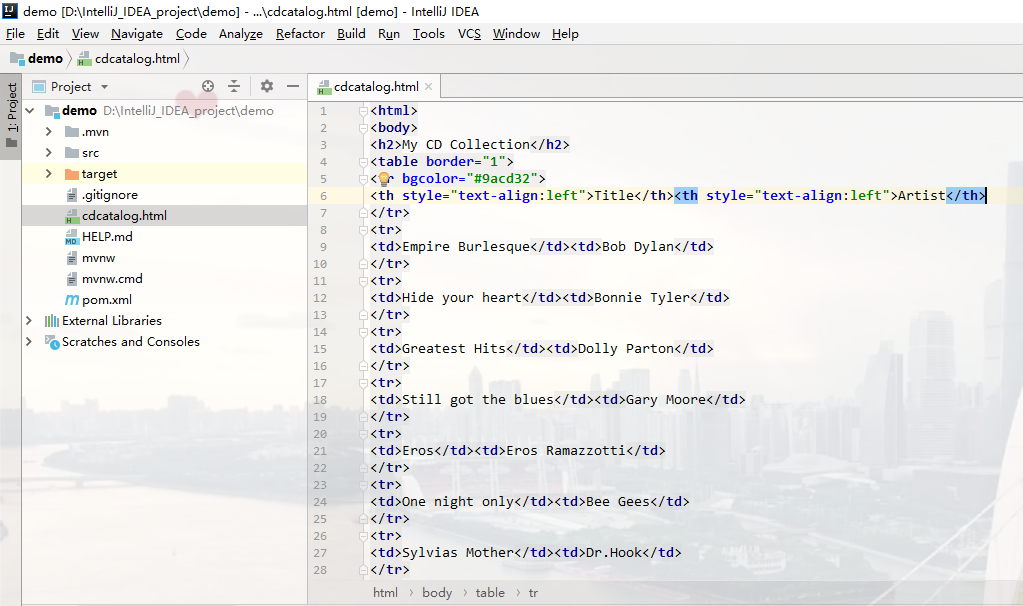XSLT on the Client and Server
1.XSLT on the Client
@RequestMapping(value = "/XSLTClient")
public String XSLTClient() {
return "XSLTOnClient";
}
<!-- XSLTOnClient.html -->
<!DOCTYPE html>
<html lang="en">
<head>
<meta charset="UTF-8">
<script>
function loadXMLDoc(filename)
{
if (window.ActiveXObject)
{
xhttp = new ActiveXObject("Msxml2.XMLHTTP");
}
else
{
xhttp = new XMLHttpRequest();
}
xhttp.open("GET", filename, false);
try {xhttp.responseType = "msxml-document"} catch(err) {} // Helping IE11
xhttp.send("");
return xhttp.responseXML;
}
function displayResult()
{
// "[[@{cdcatalog_client.xml}]]"这里使用了Thymeleaf模板引擎的语法。
xml = loadXMLDoc("[[@{cdcatalog_client.xml}]]");
xsl = loadXMLDoc("[[@{cdcatalog.xsl}]]");
// code for IE
if (window.ActiveXObject || xhttp.responseType == "msxml-document")
{
ex = xml.transformNode(xsl);
document.getElementById("example").innerHTML = ex;
}
// code for Chrome, Firefox, Opera, etc.
else if (document.implementation && document.implementation.createDocument)
{
xsltProcessor = new XSLTProcessor();
xsltProcessor.importStylesheet(xsl);
resultDocument = xsltProcessor.transformToFragment(xml, document);
document.getElementById("example").appendChild(resultDocument);
}
}
</script>
<title>XSLT on the Client</title>
</head>
<body onload="displayResult()">
<div id="example"></div>
</body>
</html>

2.XSLT on the Server
@RequestMapping("/XSLTServer")
public String XSLTServer() throws TransformerException, IOException {
Source xslt = new StreamSource(new ClassPathResource("static/cdcatalog.xsl").getFile());
Source text = new StreamSource(new ClassPathResource("static/cdcatalog_client.xml").getFile());
TransformerFactory factory = TransformerFactory.newInstance();
Transformer transformer = factory.newTransformer(xslt);
transformer.transform(text, new StreamResult(new File("cdcatalog.html")));
return "XSLTOnClient";
}


注:w3schools官网的示例用的是PHP和ASP,都可以直接返回XML通过XSLT转换后的HTML。
参考:


